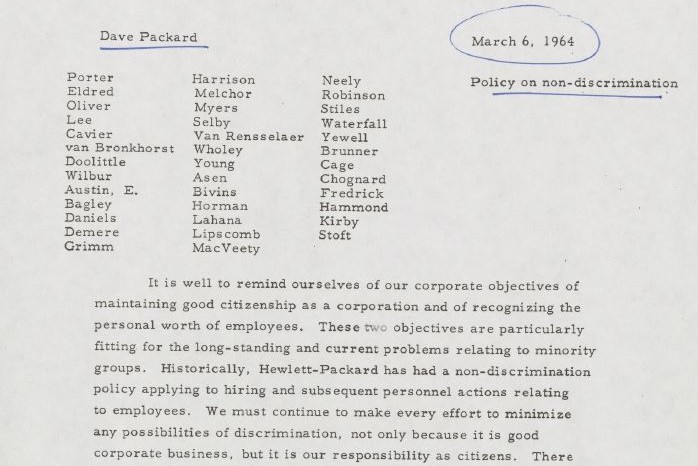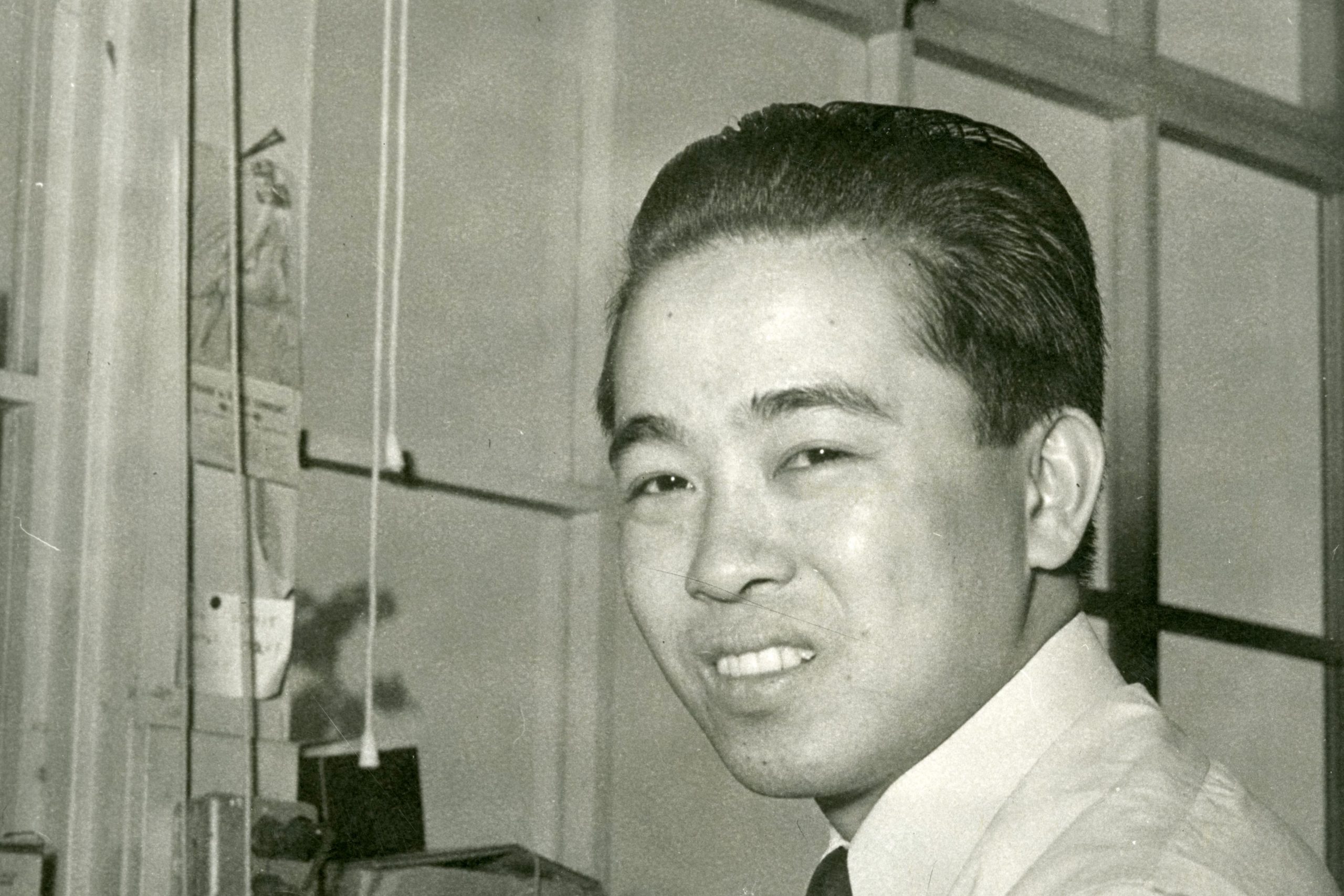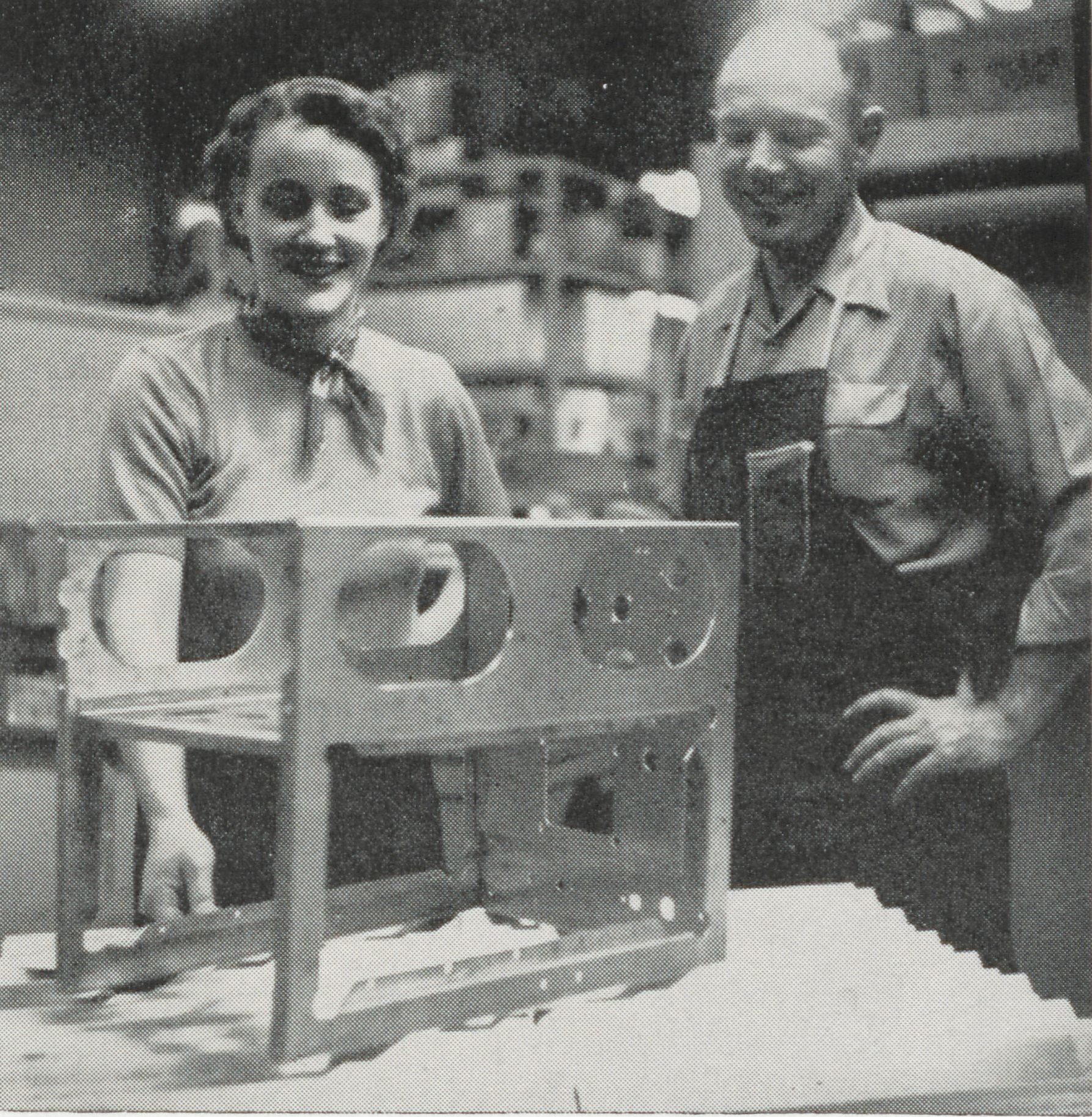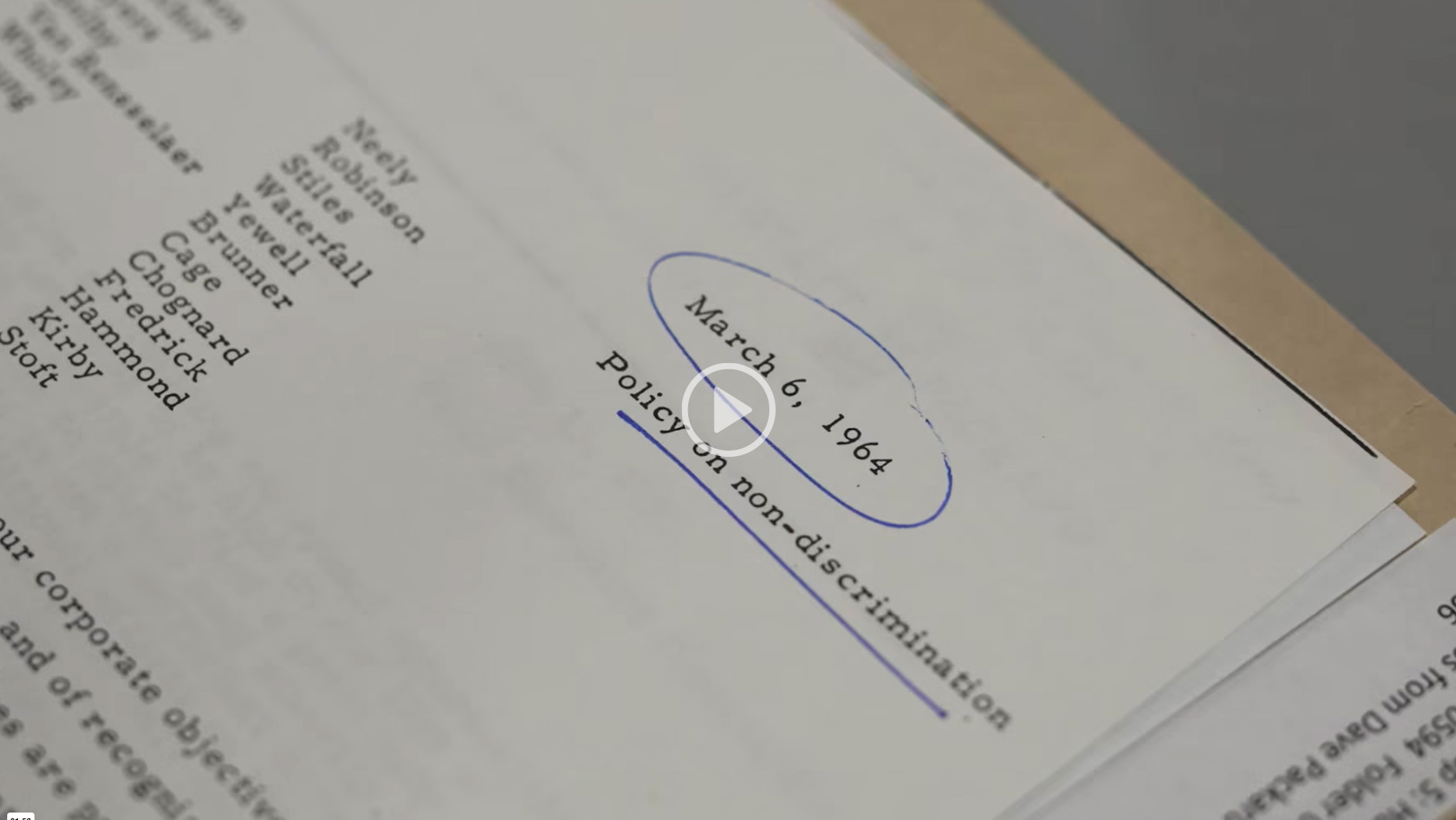
• Though HP had operated on a policy of nondiscrimination since its 1939 founding, the policy was not put into writing until Dave Packard issued a memo to all managers on March 4, 1964.
• In March 1964, movements for racial justice were sweeping the nation and the landmark Civil Rights Act of 1964 was being fiercely contested in the U.S. Senate. HP’s nondiscrimination statement was a bold declaration of its position on one of the most contentious issues of the 20th century.
• HP’s commitment to nondiscrimination marked the beginning of a new era of formal diversity and inclusion policies whose legacy continues to this day.
Dave began the memo by referencing HP’s corporate objectives and relating them directly to the present tumult: “It is well to remind ourselves of our corporate objectives of maintaining good citizenship as a corporation and of recognizing the personal worth of employees. These two objectives are particularly fitting for the long-standing and current problems relating to minority groups.” He then left no doubt about where the company had stood and would continue to stand:
“Historically, Hewlett-Packard has had a non-discrimination policy applying to hiring and subsequent personnel actions relating to employees. We must continue to make every effort to minimize any possibilities of discrimination, not only because it is good corporate business, but it is our responsibility as citizens … We will consider all applicants who are qualified, regardless of their race, color, sex, creed, or national origin.”
The Civil Rights Act of 1964 would be signed into law on July 2, banning employment discrimination based on “race, color, religion, sex, or national origin.” With Dave’s memo, HP had already put its own ban on such discrimination in writing four months earlier. It was a bold position on one of the most contentious issues of the 20th century, and it put HP unequivocally on the side of civil rights.
Throughout the ensuing decades, Hewlett-Packard honored its commitment to combating discrimination by refining its diversity, equity and inclusion policies and programs. No one could have known the scope or depth of what followed the 1964 memo — the recognition of additional minority groups, like the LGBTQIA+ community, the creation of employee networks and resource groups, and even initiatives to bridge the global digital divide. However, the basic sentiment that drove Dave’s 1964 memo — the formal commitment to treating people fairly and equitably because it was the right thing to do — guided new generations forging their own paths to upholding the HP Way.
The Hewlett-Packard Company Archives (HPCA) is dedicated to preserving and sharing HP’s rich heritage. Look for further stories about HP’s history in future issues of this newsletter. Please note that throughout this story we have included hyperlinks to related content on the HPCA Virtual Vault, providing additional information and visual accompaniments.
If you have any questions about the archives or if you are interested in donating materials to the collection, please reach out to us at hpca@heritagewerks.com.




